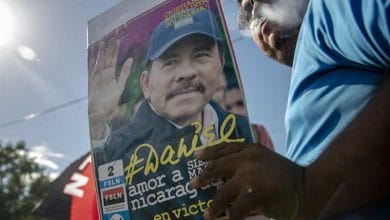
Hong Kong Voted. Is Beijing Listening?
Citizens voted overwhelmingly for pro-democracy candidates. It was a clear signal to Beijing that the protests are not a foreign plot.
If nearly six months of increasingly disruptive and violent demonstrations in Hong Kong haven’t sent the Chinese government a clear enough message about how the city’s residents feel about democracy, Sunday’s landslide victory by pro-democracy forces in elections for district councils should erase any doubts.
The councils, which deal with mundane local issues, are not particularly important institutions in Hong Kong, which remains a semiautonomous enclave according to the agreement by which Britain ceded it to China. That’s probably why China left the councils open to free elections. The pro-democracy forces — for lack of a more formal name, since they have no single organization — turned the elections into a referendum on their grass-roots movement.
The results were unequivocal. More than 70 percent of eligible voters turned out, a record for Hong Kong, and pro-democracy candidates swept up 389 of 452 elected seats, effectively taking control of 17 of 18 district councils, all of which had been under pro-establishment control.
That may not mean much in terms of real power, but the main significance was that China’s Communist leaders could no longer believe, or claim, that the demonstrations were the work of hooligans directed from abroad. If the Chinese leadership under Xi Jinping had thought that there was a silent majority opposed to the disruptive protests, the turnout and result made clear that a vast majority of Hong Kongers treasure their relative freedoms and have no intention of letting Beijing whittle them away.
There was no immediate comment from the Chinese government, except for a statement by Foreign Minister Wang Yi, speaking in Japan, that “no matter what happens, Hong Kong is part of China.” But independence has not been among the protesters’ demands, which include an investigation into police violence and amnesty for arrested protesters, thought to number more than 5,000.
The embattled Hong Kong chief executive, Carrie Lam, caught between a rebellious population and masters in Beijing demanding that she hang tough, pledged to “humbly” heed the public and “seriously reflect.” What that means concretely remains to be seen. Ms. Lam withdrew the legislation that set off the protests in June, which would have made it possible for Hong Kongers accused of some crimes to be extradited to the mainland. But neither she nor Beijing have made any further concessions, and police measures against demonstrators have become increasingly severe. At the same time, the prevailing view among experts is that Beijing is not prepared to risk the international censure it would draw if it attempted a Tiananmen-style crackdown.
The protests are certain to continue, now bolstered by the clear expression of popular support. Ms. Lam, if she stays in office, should seriously reflect on meeting the demands of the protesters, and Beijing should come to grips with the fact that democracy is not a foreign conspiracy in Hong Kong.
This would be a great moment for President Trump to sign the Hong Kong Human Rights and Democracy Act recently passed nearly unanimously by both houses of Congress, demonstrating that the United States stands foursquare behind the democratic aspirations of the citizens of Hong Kong. Unfortunately, Mr. Trump believes his trade negotiations with Mr. Xi take precedence. “We have to stand with Hong Kong, but I’m also standing with President Xi,” he said on Friday. “He’s a friend of mine. He’s an incredible guy, but I’d like to see them work it out.”
Fortunately, despite the claims Chinese propagandists have been spreading, the people of Hong Kong are not getting their signals from Washington.
